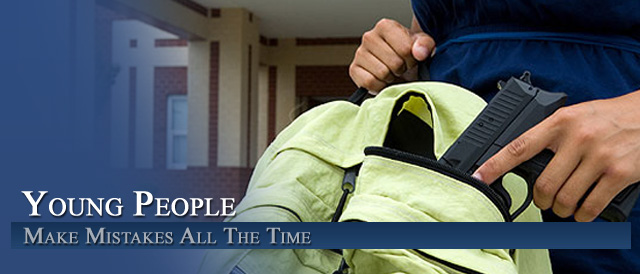
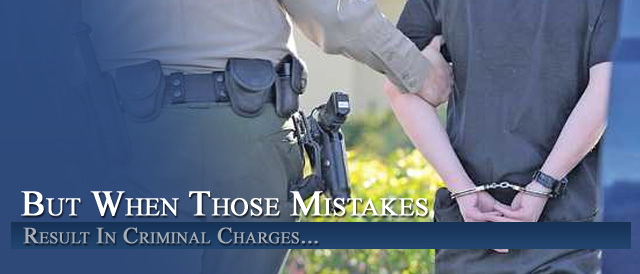
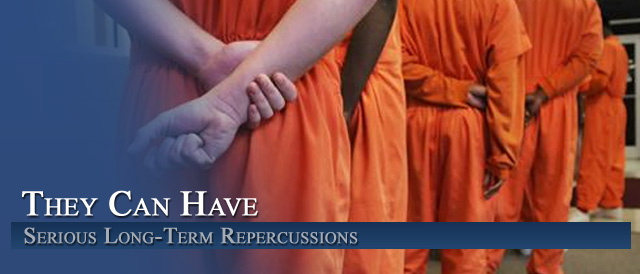
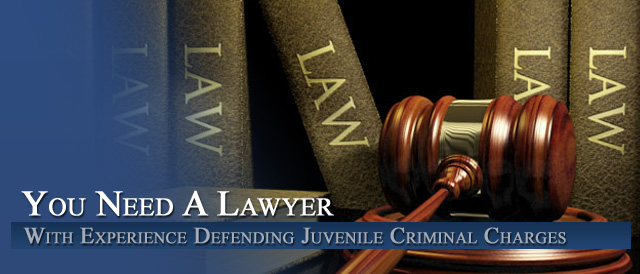
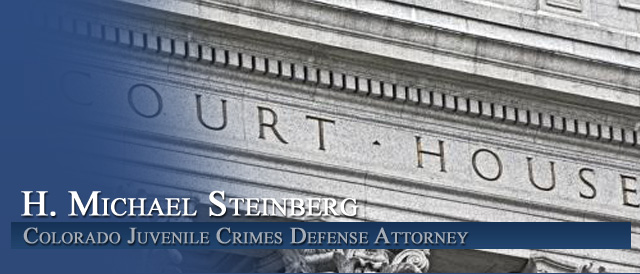
Aggravated Juvenile Offender 19-2-601
H. Michael Steinberg is both an experienced and a dedicated Colorado Juvenile Criminal Defense Attorney
As a former Senior – Career Arapahoe – Douglas County District Attorney -in his13 years (1984 – 1997) years as a prosecutor – H. Michael was assigned to the prosecution of hundreds of juvenile prosecutions. As a Colorado Criminal Defense Lawyer for the last 16 years (1997 – 2013) – he has successfully handled hundreds more juvenile cases.
Juvenile criminal defense lawyers must be specialized in this area and must have specialized training and experience to be effective on behalf of their clients… essentially just children. Because Juvenile Court is different than adult court – an experienced lawyer in adult may be incompetent to practice in juvenile court.
Where your child’s freedom and future is at stake…go with experience every time.
Here is the statute referenced in the Article That Linked you to this page:
19-2-601. Aggravated juvenile offender
(1) (a) In any action in delinquency alleging that a juvenile is an aggravated juvenile offender, as described in section 19-2-516 (4), the petition shall allege by separate count that the juvenile is an aggravated juvenile offender and that increased commitment is authorized.
(b) If the petition alleges that the juvenile is an aggravated juvenile offender, pursuant to section 19-2-516 (4), the petition shall identify by separate counts each alleged former adjudication or probation revocation and, for each such count, shall include the date of adjudication or revocation, the court, and the specific act that formed the basis for the adjudication or probation revocation. If the alleged prior adjudication or probation revocation occurred outside of this state, the petition shall so allege and shall state that the delinquent act that formed the basis for the adjudication or probation revocation would constitute a felony in this state.
(2) (a) In any action in delinquency in which it is alleged that a juvenile is an aggravated juvenile offender, the court shall, at the juvenile’s first appearance, advise the juvenile of the effect and consequences of the allegation that the juvenile is an aggravated juvenile offender.
(b) If a juvenile is alleged to be an aggravated juvenile offender pursuant to section 19-2-516 (4), the juvenile shall be required, at his or her first appearance before the court, to admit or deny any previous adjudications or probation revocations that are alleged in the petition. A refusal to admit or deny any such adjudication or probation revocation shall be considered a denial.
(3) (a) In addition to the rights specified in section 19-2-706, a juvenile who is alleged to be an aggravated juvenile offender may file a written request that adjudication of the act that is the subject of the petition shall be to a jury of twelve persons, and the court shall so order it. Any juvenile who requests a jury shall be deemed to have waived the time limit for an adjudicatory trial pursuant to section 19-2-107 (4).
(b) When a jury is requested pursuant to this subsection (3), the following challenges shall be allowed:
(I) If the petition alleges that one juvenile is an aggravated juvenile offender, the state and the juvenile shall each be entitled to five peremptory challenges.
(II) If the petition alleges that more than one juvenile is an aggravated juvenile offender and the adjudicatory trials on the acts that are the subject of the petition are not severed, the state and the defense shall be entitled to two additional challenges for every juvenile after the first, not to exceed fifteen peremptory challenges per side; when multiple juveniles are adjudicated in a single hearing, each peremptory challenge made on the part of the juveniles shall be made and considered as the joint peremptory challenge of all of the juveniles.
(c) When more than one petition concerning different juveniles is consolidated for the adjudication of the delinquent acts that are the subjects of the petitions, peremptory challenges shall be allowed as if the juveniles had been joined in the same petition in delinquency.
(4) (a) If a juvenile alleged to be an aggravated juvenile offender pursuant to section 19-2-516 (4) admits the previous adjudications or probation revocations alleged in the petition, pursuant to subsection (2) of this section, no further proof of such previous adjudications or probation revocations is required. Upon a finding that the juvenile has committed the delinquent acts that are the subject of the petition alleging that the juvenile is an aggravated juvenile offender, the court may enter any sentence authorized by this section.
(b) If a juvenile alleged to be an aggravated juvenile offender pursuant to section 19-2-516 (4) denies one or more of the previous adjudications or probation revocations alleged in the petition, pursuant to subsection (2) of this section, the court, after a finding of guilty of the acts that are the subject of this petition, shall conduct a separate hearing in which the court shall be the trier of fact to determine whether or not the juvenile has suffered such adjudications or probation revocations. Each count alleging a previous adjudication or probation revocation shall be proven beyond a reasonable doubt.
(c) In any hearing before the court pursuant to paragraph (b) of this subsection (4), a duly authenticated copy of the record of an adjudication or probation revocation shall be prima facie evidence that the juvenile suffered such adjudication or probation revocation. In addition, any basic identification information that is part of the record of such former adjudication or probation revocation at the place the juvenile was incarcerated after disposition of such adjudication or probation revocation may be introduced into evidence in any hearing before the court pursuant to paragraph (b) of this subsection (4) and shall be prima facie evidence of the identity of the juvenile.
(5) (a) (I) Upon adjudication as an aggravated juvenile offender:
(A) For an offense other than an offense that would constitute a class 1 or 2 felony if committed by an adult, the court may commit the juvenile to the department of human services for a determinate period of up to five years;
(B) For an offense that would constitute a class 2 felony if committed by an adult, the court shall commit the juvenile to the department of human services for a determinate period of at least three but not more than five years;
(C) For an offense that would constitute a class 1 felony if committed by an adult, the court shall commit the juvenile to the department of human services for a determinate period of at least three but not more than seven years;
(D) When the petition alleges the offense of murder in the first degree or murder in the second degree, or sexual assault under section 18-3-402 (3.5) or 18-3-402 (4), C.R.S., and the juvenile is adjudicated a delinquent for either murder in the first degree or murder in the second degree, then the court may sentence the juvenile consecutively or concurrently for any crime of violence as described in section 18-1.3-406, C.R.S., or for a delinquent act contained in the petition for which the juvenile is an aggravated juvenile offender.
(II) An aggravated juvenile offender thus committed to the department of human services shall not be transferred to a nonsecure or community setting for a period of more than forty-eight hours, excluding Saturdays, Sundays, and court holidays, nor released before the expiration of the determinate term imposed by the court without prior order of the court.
(b) (I) Upon court order, the department of human services may transfer a juvenile committed to its custody pursuant to paragraph (a) of this subsection (5) to the department of corrections if the juvenile has reached eighteen years of age and the department of human services has certified that the juvenile is no longer benefiting from its programs.
(II) Such transfer shall be initiated by the filing of a request by the department of human services for transfer with the court of commitment that shall state the basis for the request. Upon receipt of such a request, the court shall notify the interested parties and shall set the matter for a hearing.
(III) The court shall authorize such transfer only upon a finding by a preponderance of the evidence that the juvenile is no longer benefiting from the programs of the department of human services.
(IV) Upon entering an order of transfer to the department of corrections, pursuant to this paragraph (b), the court shall amend the mittimus and transfer all further jurisdiction over the juvenile to the department of corrections. Thereafter the juvenile shall be governed by the provisions for adult felony offenders in titles 16 and 17, C.R.S., as if he or she had been sentenced as an adult felony offender for the unserved portion of sentence that remains upon transfer to the department of corrections.
(6) (a) After a juvenile who is sentenced pursuant to sub-subparagraph (B) or (C) of subparagraph (I) of paragraph (a) of subsection (5) of this section has been in the custody of the department of human services for three years or more, the department may petition the court for an order authorizing the department to place the juvenile on juvenile parole upon approval by the juvenile parole board pursuant to section 19-2-1002. After a juvenile who is sentenced pursuant to sub-subparagraph (A) of subparagraph (I) of paragraph (a) of subsection (5) of this section has served the minimum mandatory period of the commitment or three years, whichever is sooner, the department of human services may petition the court for an order authorizing the department to place the juvenile on juvenile parole upon approval by the juvenile parole board pursuant to section 19-2-1002. The parole supervision shall be conducted by the department of human services. Upon the filing of the petition, the court shall notify the interested parties and set the matter for a hearing. The court shall authorize the department of human services to place the juvenile on juvenile parole upon approval of the juvenile parole board pursuant to section 19-2-1002, only upon finding by a preponderance of the evidence that the safety of the community will not be jeopardized by such release.
(b) Parole supervision of a juvenile who has been transferred to the department of corrections is governed by the provisions for adult felony offenders in titles 16, 17, and 18, C.R.S., as if the juvenile had been sentenced as an adult felony offender; except that, if the juvenile was adjudicated and sentenced for a class 1 felony, then the juvenile shall serve a ten-year period of mandatory parole after completion of his or her sentence.
(7) Upon the filing of a petition with the committing court for transfer of the juvenile to a nonsecure or community setting, or for early release from the custody of the department of corrections or human services, the court shall notify the interested parties and set the matter for a hearing. The court shall order such transfer or release only upon a finding by a preponderance of the evidence that the safety of the community will not be jeopardized by such transfer or release; except that early release of the juvenile from the department of corrections shall be governed by the provisions for adult felony offenders in titles 16 and 17, C.R.S., as if the juvenile had been sentenced as an adult felony offender.
(8) (a) (I) When a juvenile in the custody of the department of human services pursuant to this section reaches the age of twenty years and six months, the department of human services shall file a motion with the court of commitment regarding further jurisdiction of the juvenile. Upon the filing of such a motion, the court shall notify the interested parties, appoint counsel for the juvenile, and set the matter for a hearing. The court shall, as part of this hearing, reconsider the length of the remaining sentence and consider the factors as set forth in paragraph (c) of this subsection (8) herein.
(II) When the court notifies the interested parties, the court shall order that the juvenile submit to and cooperate with a psychological evaluation and risk assessment by a mental health professional to determine whether the juvenile is a danger either to himself or herself or to others. The mental health professional shall prepare a written report and shall provide a copy of the report to the court that ordered it, the prosecuting attorney, and counsel for the juvenile at least fifteen days before the hearing.
(b) At the hearing upon the motion, the court may either transfer the custody of and jurisdiction over the juvenile to the department of corrections for placement in a correctional facility, the youthful offender system, or a community corrections program; authorize early release of the juvenile pursuant to subsection (7) of this section; place the juvenile on adult parole for a period of five years; or order that custody and jurisdiction over the juvenile shall remain with the department of human services; except that the custody of and jurisdiction over the juvenile by the department of human services shall terminate when the juvenile reaches twenty-one years of age.
(c) In considering whether or not to transfer the custody of and jurisdiction over the juvenile to the department of corrections, the court shall consider all relevant factors including, but not limited to, the court-ordered psychological evaluation and risk assessment, the nature of the crimes committed, the prior criminal history of the offender, the maturity of the offender, the offender’s behavior in custody, the offender’s progress and participation in classes, programs, and educational improvement, the impact of the crimes on the victims, the likelihood of rehabilitation, the placement where the offender is most likely to succeed in reintegrating in the community, and the interest of the community in the imposition of punishment commensurate with the gravity of the offense.
(9) At any postadjudication hearing held pursuant to this section, the state shall be represented by the district attorney and by the attorney general; except that the attorney general may be excused from participation in the hearing with the permission of the district attorney and of the court. At any postadjudication hearing held pursuant to this section, the department of corrections shall be considered an interested party and shall be sent notice of such hearing.
(10) “Mental health professional” means a person who is employed by the department of human services or is employed under contract with the department of human services and is:
(a) A licensed physician with the appropriate training and expertise in psychiatry; or
(b) A licensed psychologist.
Other Articles of Interest:
- Colorado Juvenile Law – When IS There A Right To A Jury Trial? – C.R.S. 19- 2-107
- Sentencing – Persons Eighteen Years of Age or Older – County Jail – Community Corrections 19-2-910.
- The Filing Of Charges Decision In Colorado Juvenile Criminal Cases – The Charging Decision – Plea Bargaining Part I of II
- The Colorado Juvenile Criminal Sentencing Hearing – Part III of III
- Understanding Colorado Juvenile Sentencing Part 1 – The Aggravated Juvenile Offender Law – § 19-2-601












